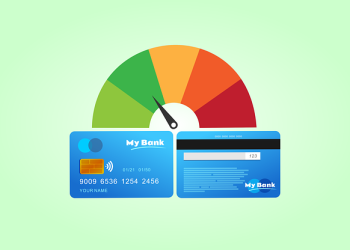Debt collection is a crucial aspect of the financial ecosystem, enabling businesses and lenders to recover funds that are rightfully owed to them. Whether it’s an unpaid invoice, a personal loan in arrears, or outstanding credit card debt, the process of debt collection helps maintain cash flow and financial stability for organisations across the UK. Despite its importance, the concept often carries a negative connotation, largely due to misconceptions and outdated practices. In today’s regulated environment, debt collection is a professional, structured process with strict legal guidelines to protect all parties involved.
What Is Debt Collection?
Debt collection refers to the process of pursuing payments of debts owed by individuals or businesses. In many cases, the original creditor will attempt to recover the funds themselves. However, if those attempts fail, the account may be passed on to a third-party collection agency or sold altogether. These third-party collectors are specialists in recovering outstanding debts while adhering to the laws laid out by the Financial Conduct Authority (FCA).
Debt collection can take many forms, including phone calls, letters, emails, and sometimes court proceedings. Importantly, collectors must follow the rules around fair treatment, ensuring they do not harass or mislead the debtor.
How Debt Collection Works in the UK
In the UK, debt collection is governed by a number of laws and guidelines to ensure ethical practice. Agencies and creditors are required to communicate in a transparent and respectful manner, providing the debtor with clear information about the debt, how it was incurred, and what options are available for repayment.
The general process includes the following steps:
- The creditor contacts the debtor to inform them of the unpaid debt.
- If unresolved, the creditor may engage a debt collection agency to recover the funds.
- The agency will reach out to the debtor with a formal notice of the debt and available payment options.
- If the debt remains unpaid, the case may be escalated to court action, resulting in a County Court Judgement (CCJ) or enforcement by bailiffs.
Your Rights as a Debtor
One of the most important things to understand is that debtors have legal rights and protections. Agencies must treat individuals fairly and must not use intimidation, threats, or false information. Debtors have the right to:
- Request proof of the debt
- Dispute the debt if it’s believed to be incorrect
- Be informed before any court action is taken
- Agree to a reasonable repayment plan based on their financial circumstances
If a debtor feels they are being mistreated, they can lodge a complaint with the FCA or the Financial Ombudsman Service.
Choosing a Reputable Debt Collection Partner
For businesses owed money, selecting a reputable and ethical partner to recover outstanding debts is essential. Not all agencies are created equal. The best firms understand the importance of preserving business relationships and act professionally to maintain the creditor’s reputation.
An effective debt collection agency will offer services such as tracing absconded debtors, negotiating payment plans, and initiating legal proceedings where necessary. They will also operate with full FCA authorisation and provide detailed reporting to clients.
Benefits of Professional Debt Recovery
Engaging a professional debt collection service can offer multiple benefits to businesses and organisations:
- Improved cash flow from recovered debts
- Reduced burden on in-house finance teams
- Access to expertise and legal knowledge
- Preservation of customer relationships through diplomatic communication
In addition, agencies can often recover more money, more quickly, than businesses attempting recovery on their own.
Working with a Debt Collection Agency UK
When choosing to work with a debt collection agency UK, businesses should look for transparency, FCA authorisation, and a track record of success. The agency should be willing to discuss their approach, fees, and provide references if requested. Clear communication, data security, and adherence to UK debt recovery regulations are all non-negotiables.
A reputable debt collection agency UK will prioritise fair negotiation and professionalism. They will ensure the process is handled efficiently while maintaining the dignity and rights of all parties involved. By leveraging their expertise, businesses can recover outstanding funds without compromising their reputation or customer goodwill.
Conclusion
Debt collection in the UK is a regulated and necessary process that helps maintain financial balance across sectors. Whether you’re an individual facing collection or a business needing to recover funds, understanding your rights and responsibilities is essential. Working with the right professionals can ensure the process is both effective and fair, preserving both financial integrity and customer relationships.







